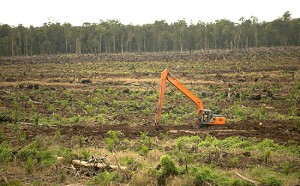 We just got word that a round of closed door negotiations will begin this week for the largest free trade agreement in history. We are talking about NAFTA on steroids—an 11-country free trade agreement called the Trans-Pacific Partnership (TPP).
We just got word that a round of closed door negotiations will begin this week for the largest free trade agreement in history. We are talking about NAFTA on steroids—an 11-country free trade agreement called the Trans-Pacific Partnership (TPP).
Right now, negotiations for the TPP are being conducted in secret. The corporate lobbyists pushing for this agreement include a who’s who list of Big Oil, Big Ag and Wall Street power brokers. Our country’s negotiators have granted approximately 600 of these corporate lobbyists access to the negotiating texts while flatly refusing to show the agreement to the public. Even members of Congress are left in the dark on the actual contents of the agreement.
Among the corporations pushing hardest for this agreement is none other than Cargill, the leading importer of forest-destroying palm oil into the United States. If the TPP is successful, Cargill will be able to export Malaysian palm oil tariff-free to the 11 partner nations involved in the agreement.
At the behest of companies like Cargill, U.S. trade negotiators are pushing hard for the Trans-Pacific Partnership to include so-called “investor-state” provisions that would grant transnational corporations the power to challenge virtually any environmental law, regulation or court decision that negatively affects their expectation of profits.
As you know, current trade rules have helped cement unsustainable production and consumption patterns worldwide. These rules have allowed companies to move operations to wherever labor and environmental standards are the weakest, wreaking havoc on forests, communities and the climate. Every country that will be part of the TPP is home to tropical rainforests or other endangered forest ecosystems that we need to be protecting, not exploiting.
There is still a chance to stop the Trans-Pacific Partnership, but time is running out. Send a message to stop this trade agreement today. We’ll hand-deliver all of your messages to US trade representatives, as well.
We must learn our lessons from the failed trade agreements of the past and stake out a different course for the future, where peoples’ lives and livelihoods are protected. The Trans-Pacific Partnership is going in the wrong direction at a time when we must strengthen environmental protections, not facilitate a race to the bottom in environmental deregulation.